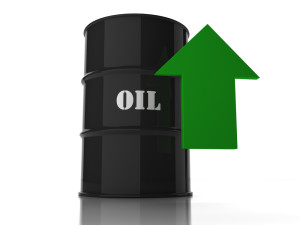The Cost of Waiting

 If you’re about to undertake a paving project that was deferred from last year, you can expect a cost increase due to rising crude oil prices. The liquid asphalt used as a binder in pavement is a petroleum product (a byproduct of gasoline production). Most paving contractors have escalation clauses in their proposals in anticipation of changes in oil prices and they’re usually based on a recognized industry index. Local indices are published by the Maryland Asphalt Association (www.mdasphalt.org ) and the Virginia Department of Transportation (www.virginiadot.org/business/const/indices-asphalt.asp).
If you’re about to undertake a paving project that was deferred from last year, you can expect a cost increase due to rising crude oil prices. The liquid asphalt used as a binder in pavement is a petroleum product (a byproduct of gasoline production). Most paving contractors have escalation clauses in their proposals in anticipation of changes in oil prices and they’re usually based on a recognized industry index. Local indices are published by the Maryland Asphalt Association (www.mdasphalt.org ) and the Virginia Department of Transportation (www.virginiadot.org/business/const/indices-asphalt.asp).
Adjustments would be made according to a formula that factors in the differences between liquid asphalt costs (normally “short-ton” figures) at the time of proposal submission and acceptance. That difference would then be multiplied by some factor (typically .003 to .005) for an adjusted square yard increase, per-inch of thickness. As an example, a simple two-inch overlayment (without patching) at a 5,000 square yard parking lot that would have cost $100,000.00 ($20.00 per square yard) based on a liquid asphalt price of $465.50 would be increased by $6,520.00 based on the May 2011 asphalt price of $628.50 [(628.50-465.50=163) (163 x .004=.652) (.652 x 2=1.304) (1.304 x 5,000 = 6,520)]. Other increases for fuel and other operating expenses could also be incorporated into escalation clauses.
